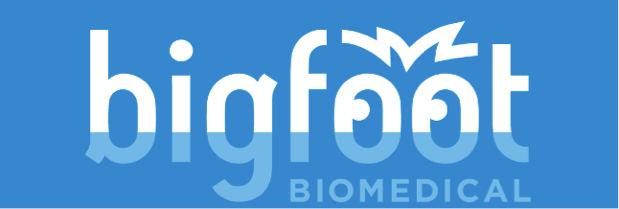Tag: MS Master of Science
Alice (Chou) Bachert
Dan Mendelson

"Try and figure out what you want to do with your career as early as possible, by doing a variety of internships, research activities, or whatever else may apply to your given field. This will allow you to focus your educational preferences and more quickly master the skills you need to become an expert in your field. Additionally, never be content and never stop asking questions and trying to learn new things, as this is extremely important in career development."
Daniel Eversole, PhD
Ali Anoff, JD

"I would suggest that students who are interested in patent law take every possible opportunity to hone their technical writing skills. I would also encourage students to establish a strong technical background including conducting research. When I interviewed for patent law jobs, I was surprised that many perspective employers were more interested in the research that I did at UR, than the criminal litigation work I had done during law school."
Andrew Bochenko

"There often will be a number of qualified candidates for an open role, so distinguish yourself by who you know and how you communicate. Network, build relationships, and don’t be afraid to ask for help. Job search engines are great for identifying companies, but you’re much more likely to get your foot in the door if you build a contact there. LinkedIn is a great tool to get started with this."
Lisa Bobich, PhD

"Search for medical device companies and apply to any position that looks interesting; apply to all positions even if you don’t feel fully qualified – the company can decide whether to consider you or not (i.e., don’t filter yourself out by not applying); at my company, a lot of biomedical engineers work in the quality role. the best way to land a role is to network – I did this by finding an internship when I could not find a full-time position and then used the internship to network and find a full-time position."
Huy Le

"Find an area of science/engineering (or any related field) that is continually challenging and don’t hesitate to apply to positions where your qualifications may not perfectly match. Obtaining a degree in Biomedical Engineering means a student is equipped with the necessary skills to learn on the job and to lead."
Nick Drury

"Regardless of whether going to graduate school or into the workforce, first identify your interests and then aggressively pursue your options! The jobs will not come to you, but rather use all available resources, most importantly networking, to get your foot in the door. Once there, be confident in yourself and know that you’re well-trained to be successful."
Michael Springer
Master of Science
Alice (Chou) Bachert
Dan Mendelson
"Try and figure out what you want to do with your career as early as possible, by doing a variety of internships, research activities, or whatever else may apply to your given field. This will allow you to focus your educational preferences and more quickly master the skills you need to become an expert in your field. Additionally, never be content and never stop asking questions and trying to learn new things, as this is extremely important in career development."
Daniel Eversole, PhD
Ali Anoff, JD

"I would suggest that students who are interested in patent law take every possible opportunity to hone their technical writing skills. I would also encourage students to establish a strong technical background including conducting research. When I interviewed for patent law jobs, I was surprised that many perspective employers were more interested in the research that I did at UR, than the criminal litigation work I had done during law school."
Andrew Bochenko

"There often will be a number of qualified candidates for an open role, so distinguish yourself by who you know and how you communicate. Network, build relationships, and don’t be afraid to ask for help. Job search engines are great for identifying companies, but you’re much more likely to get your foot in the door if you build a contact there. LinkedIn is a great tool to get started with this."
Lisa Bobich, PhD

"Search for medical device companies and apply to any position that looks interesting; apply to all positions even if you don’t feel fully qualified – the company can decide whether to consider you or not (i.e., don’t filter yourself out by not applying); at my company, a lot of biomedical engineers work in the quality role. the best way to land a role is to network – I did this by finding an internship when I could not find a full-time position and then used the internship to network and find a full-time position."
Huy Le
"Find an area of science/engineering (or any related field) that is continually challenging and don’t hesitate to apply to positions where your qualifications may not perfectly match. Obtaining a degree in Biomedical Engineering means a student is equipped with the necessary skills to learn on the job and to lead."
Nick Drury

"Regardless of whether going to graduate school or into the workforce, first identify your interests and then aggressively pursue your options! The jobs will not come to you, but rather use all available resources, most importantly networking, to get your foot in the door. Once there, be confident in yourself and know that you’re well-trained to be successful."

